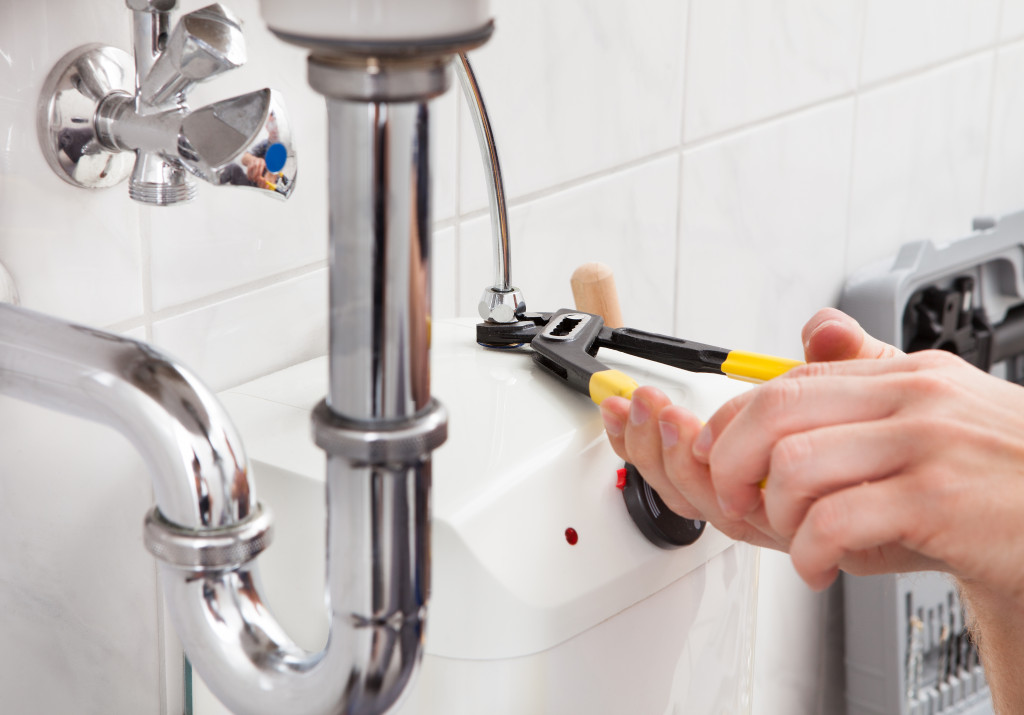The plumbing system is one of the essential functions of your home. Even a minor issue can lead to large-scale damage, so it must be maintained with special care. However, you might be doing some practices that damage your plumbing system without your notice.
If you don’t unlearn these practices, your maintenance costs could go up. Within a short period, you may deal with repairs that you could’ve avoided. So without further ado, here’s a guide on how to maintain your plumbing system without going over the budget:
1. Avoid Flushing Bleach-containing Tablets
If you clean your toilet with bleach-containing tablets, clean it up within ten minutes of applying it. Flushing it down won’t cause immediate problems, but continuing this habit will lead to corrosion and degradation of the working parts of your toilet.
The tablet’s packaging claims that it’s flushable, but it doesn’t say what will happen to your toilet if you flush it repeatedly. So to maintain your toilet’s pristine condition, be careful with the bleach.
2. Do Seasonal Maintenance Checks
Your home maintenance checklist should vary by season. Plumbing systems don’t usually develop problems in the fall, thankfully, but in the winter, they might. The pipes become susceptible to freezing during snowy weather. In turn, the water inside may also freeze, causing pressure to the pipes until they burst.
That would be a serious problem that can cause irreparable damage to your furniture and floor. Hence, preventive measures are essential. Just inspect your pipes before the snow falls, and winterize them if you’re going to be away for long periods.
Winterizing means draining all the water from the pipes and water heater and filling all fixtures with an anti-freeze solution. This task is easy to DIY, albeit time-consuming. If you’re not going to be away during winter, you don’t need to drain the pipes and heater. Just cover them with insulation sleeves or any other insulating material. Be sure that your indoor heating system is functioning to protect the pipes against the cold.
3. Avoid Flushing Down Wipes
If you bought a bulk of wipes during the pandemic, where have you been disposing of them? If you’ve been flushing them down the toilet, cut the habit before it’s too late. The material of the wipes may look flushable, but there should be information on their packaging about their dissolution.
Likewise, avoid flushing feminine hygiene products, cotton pads or balls, paper towels, and other seemingly flushable products. Only toilet paper can go down the toilet and disintegrate. But if you can avoid flushing them too, do so. The best place for bathroom wastes is the dust bin.

4. Perform Routine Drain Cleaning
Over time, drains gather debris and get clogged. But you can avoid serious clogs by performing routine drain cleaning. Every month or so, open up your drains and remove the buildup of hair, soap, and other foreign objects.
If your drains still clog even without obstruction, the sewer line itself could be the problem. Observe if the rest of your drains, including the toilet, are also clogged. If they are, call your trusted plumber so that they can check and repair the sewer lines.
5. Call a Plumber Before Issues Get Serious
Aside from sewer line issues, there are more plumbing issues that a DIY repair can’t solve. While your DIY skills can help save costs, they can also cost you more in the end if you performed the repair improperly.
Issues that warrant a professional include water supply line leaks, the sudden absence of running water, rapid drainage line leak, gaseous odors from the drains, and a gas leak from the heaters. The last issue, in fact, also requires the attention of your fire department. The natural gas buildup is highly combustible, so don’t attempt to resolve it without a professional. Leave your house immediately and call 911.
6. Conserve Water
Conserving water will reduce both your plumbing costs and overall home maintenance costs. More importantly, it will help save the environment. But conserving water isn’t just turning off the tap while brushing your teeth. It’s also preventing leaks.
Leaks can affect your faucets, showers, water heater, and hoses. Every day, check if those fixtures are intact. If you notice a leak, look for the source and see if a DIY solution can fix it. If the problem seems serious or hard to diagnose, call a plumber.
Note that even though it feels safer to call a plumber than to fix an issue yourself, their services are more worth the money if the problem isn’t trivial. So research about common plumbing issues and their easy fixes. Your DIY plus water conservation skills are the most cost-efficient way to control your maintenance costs.
